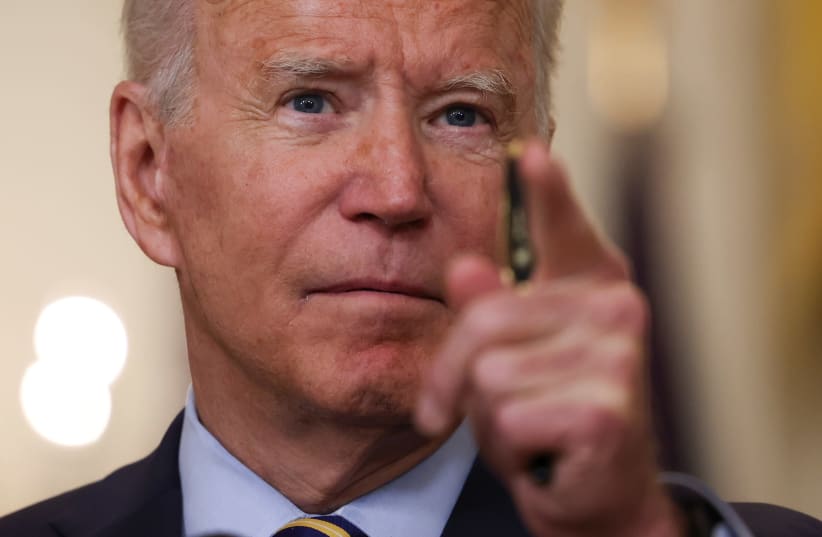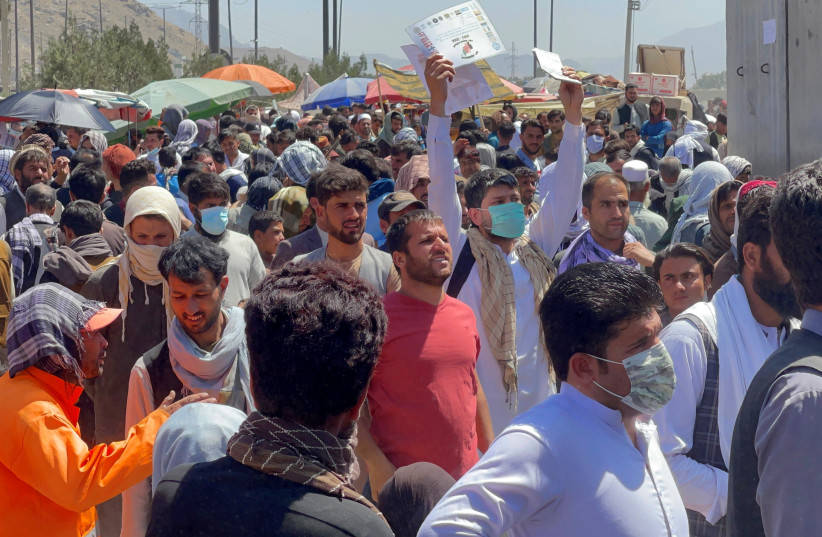An Afghan interpreter who helped save US President Joe Biden in Afghanistan 13 years ago was successfully evacuated from the country along with his family after seeking to leave following the Taliban takeover, CNN reported Monday.
The interpreter, identified as Aman Kahlili, was rescued from Afghanistan by the US State Department and the NGO Human First Coalition and taken to Pakistan alongside his family, with the cooperation of Pakistani Prime Minister Imran Khan, the coalition told CNN, confirming news first reported by the Wall Street Journal.
In 2008, a snowstorm forced then-senator Biden, accompanied in a helicopter by then-senators Chuck Hagel and John Kerry and their respective aides, to make an emergency landing in the Afghan mountains.
Now, 13 years later, Khalili had put a call out to Biden to return the favor and save him, giving an anonymous (he was identified only as Mohammed) plea to the WSJ in August.
As an Afghan who worked for the US Army as an interpreter during the 20-year military presence in Afghanistan, Khalili was technically entitled to a Special Immigrant Visa to leave the country. However, while he was allowed into the Kabul Airport, his visa was, like many others, stuck in processing, according to the WSJ. This itself isn't too surprising, as the evacuation process has been widely criticized for being frantic and disorganized.
But it was also a matter of urgency, as despite the Taliban vowing not to harm any Afghans who had worked with foreign armies, many interpreters still feared for their safety. Back in May, 32-year-old Sohail Pardis was reportedly beheaded by the Taliban for his short 16-month stint as a US Army translator nearly a decade ago. Pardis had been fired from his job in the army and was therefore unable to qualify for a Special Immigrant Visa.
"They were telling him you are a spy for the Americans, you are the eyes of the Americans and you are infidel, and we will kill you and your family," Pardis's friend Abdulhaq Ayoubi told CNN in July.
Khalili had similar fears for his safety.
"I can't leave my house," he told the WSJ in August. "I'm very scared."
However, he kept his faith in the president, telling CNN's Anderson Cooper that he trusts Biden.
And on August 31, the Biden administration responded to this plea, reaffirming its pledge to evacuate its Afghan allies and praising Khalili for helping Biden in 2008.
"Our message to him is: Thank you for fighting by our side for the last 20 years. Thank you for the role you played in helping a number of my favorite people out of a snowstorm and for all the work you did. And our commitment is enduring, not just to American citizens but to our Afghan partners who have fought by our side," White House press secretary Jen Psaki said, CNN reported at the time.
"We will get you out. We will honor your service. And we're committed to doing exactly that."

